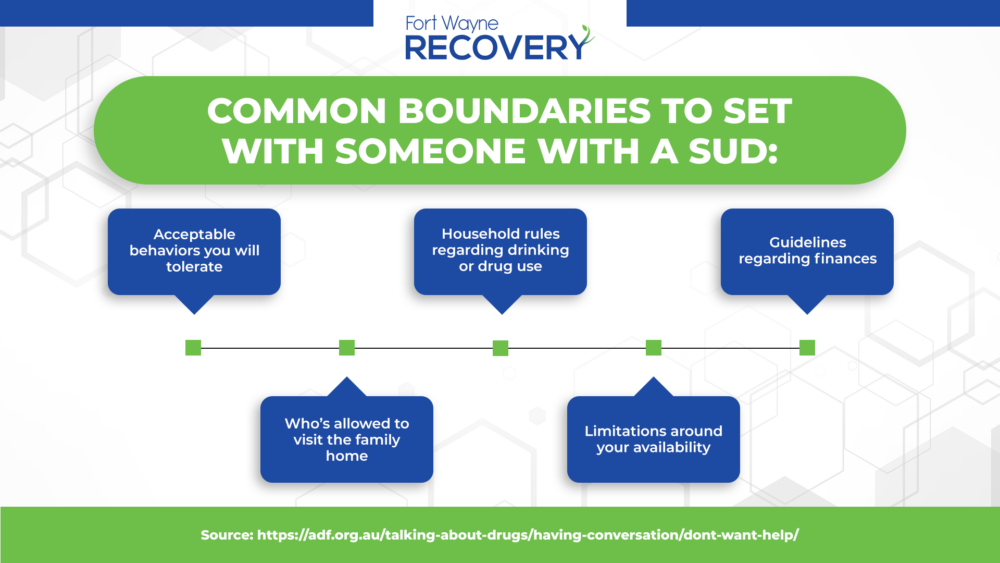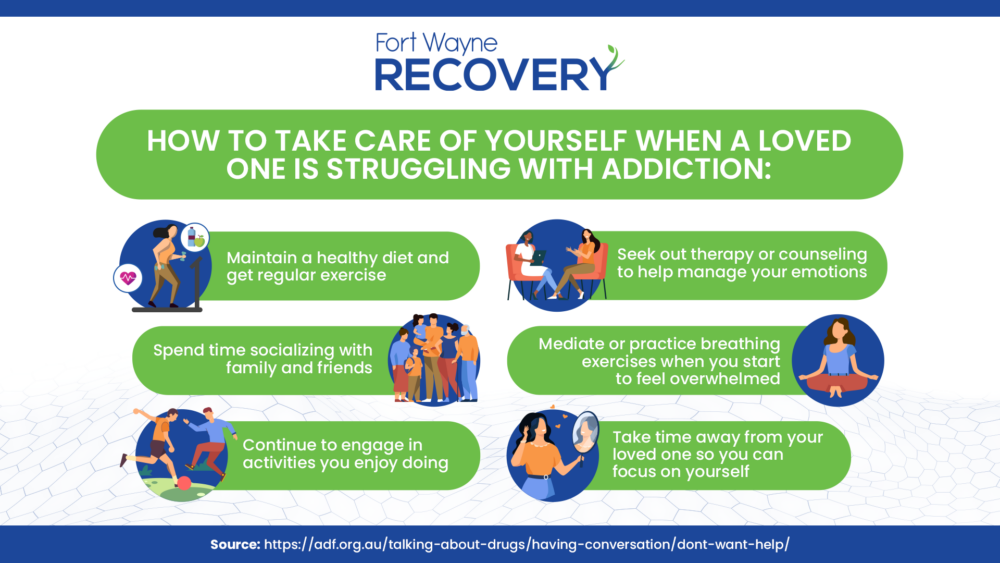What to do When A Loved One Doesn’t Want Help For a Substance Use Disorder
What to do When A Loved One Doesn’t Want Help For a Substance Use Disorder
In 2021, 46.3 million people had a substance use disorder (SUD) but 4.2 million did not seek out treatment. It can be difficult for family and friends to come to terms with a loved one who doesn’t want help with their addiction, especially when they see the person struggling.
Whether they think they don’t have a problem or simply don’t think treatment will work, there are things you can do to encourage them to get help. By understanding the reasons why they might not want to seek out treatment and methods to encourage them to get support for their SUD, you may be able to persuade them to take the first step forward on the path to long-term sobriety.
Reasons Why People Might Not Want Help
4.2 Million
people did not seek out treatment for their substance use disorder
Even if someone knows they should get help for their SUD, they may have valid reasons for delaying or not seeking treatment such as being afraid they won’t be able to afford it. Depending on the type of insurance they have, there may be limitations on the type or length of treatment they qualify for. But this shouldn’t be a hindrance and you can assist them by doing additional research into what their options are.
You can also reach out to other family members who may be able to help pay for treatment or provide additional resources such as transportation if the treatment facility isn’t nearby or temporarily pay their bills while they are going through medical detox or inpatient treatment.
Nate Moellering, a community outreach coordinator at Allendale Treatment and Fort Wayne Recovery says that no matter what the person’s financial situation there are treatment options available to them. “One of the things you can do is help them find out what resources are available to them based on what their insurance is or if they don’t have insurance,” says Moellering. There are lots of resources out there including detox and rehabilitation treatment facilities, support groups and virtual treatment options and you can present the person with their options.”
Stigma is another hurdle that may prevent people from getting treatment. They may feel ashamed to admit to family and friends that they have a problem or think they will look down on them so it’s important to be supportive when discussing their addiction and encourage others to do the same. Addiction is a medical condition and shouldn’t be viewed as a moral or personal failure and it’s important to treat it as any other health issue to help remove any stigma.
Helping Them Understand the Benefits of Treatment
While they may come up with excuses not to go to treatment, you can let them know about all the reasons why they should. If they are worried about taking time off work or missing family obligations you can explain to them that by getting help, they will be able to focus on themselves and consequently will be a better employee and family member in the long run. Moellering says that it’s incredibly difficult for people to get sober on their own and that’s why getting treatment is so important, “I don’t know many people who’ve been able to fix their addiction on their own. They may think they can “cure themselves” but they really need to seek some kind of professional help to stack the odds in their favor of maintaining their sobriety.”
One of the main reasons substance abuse treatment is important is because it focuses on addressing the behavioral health issues that are the driving factor the addiction and utilizes a dual diagnosis approach to treat SUDs. Mental health issues such as depression, anxiety, trauma, or personality disorders are the underlying causes of addiction and by treating those issues, they will be in a better position to remain sober.
You can also talk about how their addiction is impacting everyone else. While you don’t want to shame them into seeking treatment, it could be beneficial to discuss how the addiction is impacting everyone around them. If other people in the household feel uncomfortable with their behavior or are even experiencing their own mental health issues it’s important that you bring it to their attention. “I know parents or spouses, grandparents or siblings of people with substance use disorders who ended up needing mental health treatment,” says Moellering.
“I know parents or spouses, grandparents or siblings of people with substance use disorders who ended up needing mental health treatment”
“I know parents or spouses, grandparents or siblings of people with substance use disorders who ended up needing mental health treatment”
Staging an Intervention
From support groups such as AA and NA to sober living homes, outpatient treatment options come in a variety of shapes and sizes. Depending on the individual’s needs and available time and resources, outpatient or aftercare programs can be tailored to support long-term sobriety. People can continue ongoing treatment and receive support for their mental health as their schedule allows so they can carry on with their jobs and maintain their family obligations. As they transition from an inpatient program, they’ll be able to build on the skills they learned during their detox and residential treatment while developing new ones.
You may find that organizing an intervention is the best way to encourage your family member or friend to get treatment. It’s important to plan the intervention beforehand for the best chance of success. You want to make sure you’re able to achieve what you want without your loved one feeling attacked, which could worsen the situation. Here are some steps you can take to plan a successful intervention:
Moellering says that no matter what method is used to get someone help for their addiction, the first step they have to take is admitting they have a problem. “If they’re refusing to acknowledge they have a problem, then that’s the first step they need to take to get on the path to recovery and if they are unwilling to do so, it’s good to create and maintain boundaries and take care of yourself so you don’t end up in the same situation down the road.”
“If they’re refusing to acknowledge they have a problem, then that’s the first step they need to take to get on the path to recovery”
Nate Moellering, Community Outreach Coordinator



